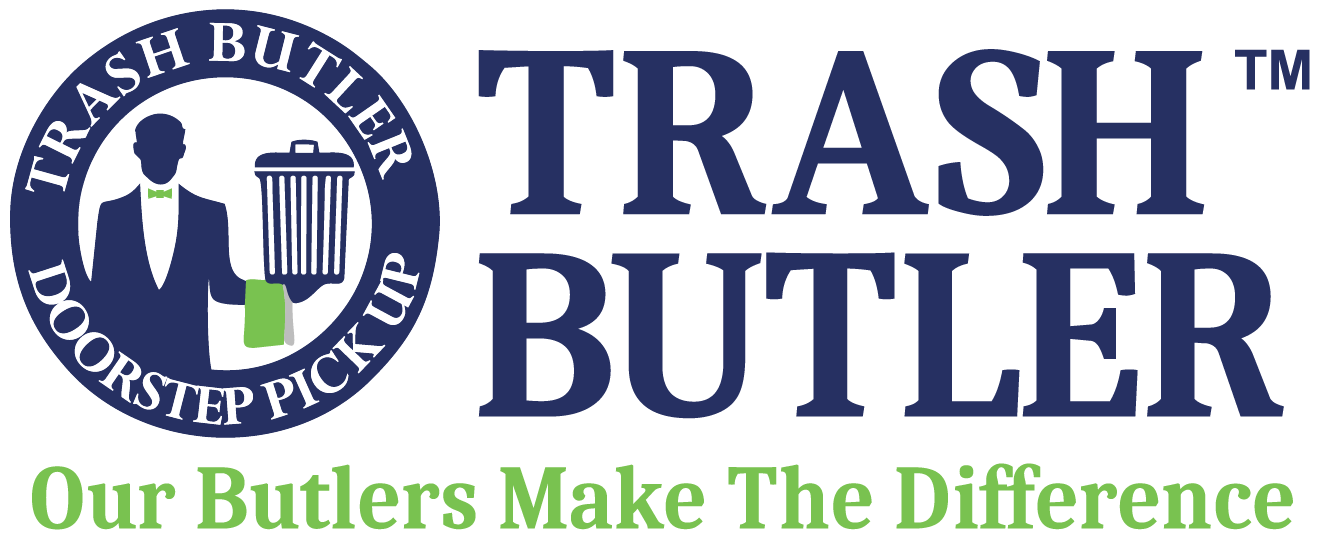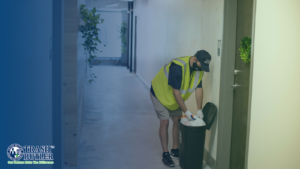Key Takeaways:
- Sustainability Enhances Value: Integrating sustainable practices, like energy-efficient upgrades and waste management solutions, lowers operational costs and increases property value and marketability.
- Attract Environmentally Conscious Tenants: Today’s renters prioritize sustainability. Creating green living spaces can appeal to this demographic, leading to higher occupancy rates and tenant satisfaction.
- Smart Technology Drives Efficiency: Implementing smart solutions for energy and water management can optimize resources, reduce costs, and improve the tenant experience, making your property a more attractive option in a competitive market.
As a multifamily property manager, your responsibilities extend beyond tenant satisfaction and financial performance; you can lead your community toward a more sustainable future. With the growing demand for eco-friendly living spaces, adopting sustainable practices can set your property apart, attract environmentally conscious tenants, and positively impact your bottom line and the planet.
In this article, we’ll explore practical, actionable, sustainable practices that can easily be integrated into your management strategy. From energy-saving upgrades to waste management solutions, you’ll discover how these initiatives can elevate your property’s value, reduce operational costs, and contribute to a healthier planet.
Understanding Sustainable Property Management: Why It Matters For Multifamily Properties
This approach underscores a commitment to environmental stewardship and aligns with the growing demand among residents for green living spaces. Moreover, it presents various benefits, from operational cost savings to enhanced property valuation and marketability. As we delve deeper into the significance of sustainable property management, it’s essential to recognize its impact on multifamily communities and how it supports the long-term success of property management efforts.
The Environmental Imperative
At its core, sustainable property management is about minimizing the environmental footprint of multifamily properties. This involves adopting practices that reduce energy consumption, waste production, and water use. By focusing on sustainability, property managers can significantly lower greenhouse gas emissions and contribute to the broader environmental protection and conservation goals. This alignment with ecological sustainability is not just about fulfilling regulatory requirements or achieving certifications; it’s a declaration of the property’s commitment to the planet’s future.
Economic Advantages
Beyond the environmental benefits, sustainable property management offers substantial economic advantages. Implementing energy-efficient lighting, appliances, and HVAC systems can save considerable utility bills. Likewise, water-saving fixtures and landscaping choices can drastically reduce water usage and associated costs.
These savings can then be redirected towards further property improvements or other strategic investments. Additionally, properties that embrace sustainability often qualify for various incentives, rebates, and tax benefits, contributing directly to the bottom line.
Enhancing Resident Satisfaction and Retention
Today’s renters are increasingly environmentally conscious and value sustainability as a key factor in their housing decisions. Multifamily properties that prioritize sustainable practices meet these expectations and enhance their residents’ quality of life. Features such as recycling programs, energy-efficient buildings, and green spaces contribute to a healthier living environment and can significantly boost resident satisfaction. This, in turn, can lead to higher retention rates, reducing turnover costs and stabilizing rental income.
Market Differentiation
Sustainability can be a powerful differentiator for multifamily properties in a competitive real estate market. Properties recognized for sustainable management practices stand out to potential renters and can command higher rents and occupancy rates. Furthermore, investors and stakeholders often view these properties more favorably, increasing their market value and attractiveness for future transactions.
How Energy Efficiency Can Reduce Operating Costs In Multifamily Properties
Here, we explore various strategies multifamily property managers can implement to enhance energy efficiency, leading to reduced operating costs.
Implement Energy-Efficient Lighting Solutions
Adopting LED lighting throughout the property is one of the most straightforward yet effective approaches. According to the U.S. Department of Energy, compared to traditional incandescent bulbs, LEDs use at least 75% less energy and last 25 times longer.1 By outfitting common areas, parking lots, and resident spaces with LED bulbs, properties can experience substantial savings in energy costs.
Upgrade to Energy-Efficient Appliances
Another impactful strategy is incorporating ENERGY STAR-certified appliances in apartment units. These appliances, which include refrigerators, dishwashers, and washing machines, are designed to utilize minimal electricity and water. While the upfront cost may be higher, the long-term savings on utility bills can offset the initial investment, benefiting the property management and residents.
Enhance Insulation and Sealant
Improving a building’s insulation and sealant can significantly reduce heating and cooling expenses. Effective insulation keeps the desired temperature in your property more constant, diminishing the need for excessive heating in winter and cooling in summer. This leads to energy savings and contributes to a more comfortable living environment for residents.
Incorporate Smart Thermostats
The integration of smart thermostats into multifamily units allows for more precise control of heating and cooling, which can dramatically decrease energy usage. Residents can adjust settings based on their schedules and preferences, ensuring that they are not wasting energy when not at home. Additionally, property managers can oversee common areas and vacant units with centralized controls to further optimize energy use.
Invest in Renewable Energy Sources
Finally, exploring renewable energy options such as solar panels can offer a long-term solution to reducing operating costs associated with energy use. While the initial setup can be substantial, the reduction in utility costs and the positive impact on the environment make it an investment worth considering for the future of sustainable property management.
Water Conservation Tips: Effective Strategies For Multifamily Property Managers
Implementing water conservation strategies aligns with sustainability goals and enhances the value proposition for increasingly eco-conscious residents. Here are several effective strategies that multifamily property managers can adopt to promote water conservation within their communities:
Install Water-Efficient Fixtures
Upgrading to water-efficient fixtures such as low-flow toilets, showerheads, and faucet aerators is a fundamental step toward reducing water usage. These fixtures can significantly diminish the volume of water utilized in daily activities without compromising service quality, enabling water conservation and cost savings on water bills.
Leverage Smart Irrigation Systems
Incorporating smart irrigation technology can drastically reduce water waste in landscaping maintenance. Smart irrigation systems optimize watering schedules based on real-time weather conditions and the specific watering needs of plants, thus preventing overwatering. This technology ensures that landscapes are efficiently watered, preserving resources and maintaining the property’s aesthetic appeal.
Conduct Regular Water Audits
Regular water audits allow property managers to identify leaks and inefficiencies in the water system. By conducting these audits, managers can detect areas where water is being wasted and take corrective action promptly. Fixing leaks and addressing inefficiencies not only conserves water but also avoids potential damage to the property and reduces unnecessary expenditure on water bills.
Promote a Water-Conservation Culture
Fostering a culture of water conservation among residents is key to maximizing the impact of any water-saving initiatives. This can be achieved through educational campaigns, incentives for water-saving behaviors, and involving residents in water conservation projects. Encouraging residents to participate actively in sustainability efforts can significantly amplify the results of these initiatives.
Implement Water Recycling and Reuse Systems
Exploring opportunities for water recycling and reuse can further enhance water conservation efforts. Greywater recycling systems, for instance, allow water to be reused from sinks, showers, and laundry facilities for landscaping and toilet flushing. By implementing such systems, properties can drastically reduce their freshwater consumption and contribute to a more sustainable water cycle within the community.
Waste Management And Recycling Programs That Work For Multifamily Communities
Here, we explore key strategies to enhance waste management and recycling efforts in these settings.
Tailored Waste Collection Services
Tailored waste collection services, such as those offered by Trash Butler™, play a vital role in fostering sustainable living environments. By providing doorstep valet trash service, these programs ensure a streamlined and convenient waste disposal process for residents.
This convenience is critical in multifamily communities where the distance to disposal sites may discourage proper disposal practices. The personalized touch of ‘Butlers’ significantly enhances the resident experience, making Trash Butler™ a preferred amenity among multifamily property managers.
Implementing Comprehensive Recycling Solutions
A comprehensive recycling solution is essential for effective, sustainable property management. Multifamily communities face unique challenges, such as space constraints and diverse recycling needs, that necessitate well-planned recycling programs.
These programs should offer clear guidelines on recyclable materials, ensuring residents understand what can be recycled. Access to convenient recycling bins strategically placed throughout the property is crucial. This accessibility encourages consistent recycling habits among residents, contributing to the overall waste reduction goal.
Educating Residents on Sustainable Waste Practices
Education is a fundamental component of any successful waste management and recycling program. Multifamily property managers should invest in educating their residents about the importance of sustainable waste practices.
This can include hosting community workshops, providing informative materials on waste sorting, and offering incentives for participation in recycling programs. Such educational initiatives reinforce the community’s commitment to sustainability and empower residents to contribute positively to their environment.
Leveraging Technology for Efficiency
Advancements in technology offer exciting opportunities to enhance waste management and recycling programs. Mobile apps can facilitate waste collection schedules, recycling reminders, and educational content on waste reduction strategies. Implementing technology solutions helps streamline operations and keeps residents engaged with the community’s sustainability efforts.
Sustainable Materials: How To Choose Eco-Friendly Renovation Options
The choice of sustainable materials demonstrates a commitment to environmental stewardship and aligns with residents’ growing demand for greener living spaces. Here, we explore how property managers can make informed decisions about eco-friendly renovation options.
Assess Environmental Impact
The first step in choosing sustainable materials is to evaluate their environmental impact. This involves considering the entire lifecycle of the materials, from extraction and manufacturing to usage and eventual disposal or recycling.
Opt for materials sourced and produced in an environmentally responsible manner, such as those that require less water and energy to manufacture and those made from recycled or rapidly renewable resources.
Prioritize Durability and Efficiency
Selecting materials that are durable and energy-efficient is crucial for sustainable property management. Durable materials reduce the need for frequent replacements, thereby minimizing waste and long-term costs. For instance, choosing high-quality, energy-efficient windows can significantly reduce heating and cooling expenses, leading to financial savings and a reduction in the property’s carbon footprint.
Consider Health and Safety
Sustainable renovation goes beyond environmental concerns to include the health and safety of residents. Eco-friendly materials should be non-toxic and free from harmful chemicals, such as volatile organic compounds (VOCs), affecting indoor air quality. Materials like natural wood, bamboo flooring, or low-VOC paints and adhesives ensure a healthier living environment for your residents.
Leverage Local and Recycled Materials
Using local and recycled materials is an excellent strategy for sustainable property management. Local materials reduce the carbon emissions associated with transportation, while recycled materials help reduce the demand for virgin resources and decrease landfill waste. Explore options like reclaimed wood, recycled metal, or locally sourced stone to add character and sustainability to your property.
Collaborate with Green Building Professionals
To optimize your renovation projects for sustainability, consider partnering with professionals specializing in green building. These experts can provide valuable guidance on the most suitable eco-friendly materials for your needs and budget. They can also assist in navigating certifications such as LEED (Leadership in Energy and Environmental Design), which can further enhance the property’s appeal to environmentally conscious residents.
Smart Technology For Sustainable Property Management: Improving Efficiency And Tenant Experience
In today’s rapidly evolving technological landscape, property managers increasingly turn to smart technology to enhance efficiency, reduce costs, and improve the tenant experience. Property managers can contribute to a more sustainable and environmentally friendly future by integrating smart solutions into their operations.
Key Areas of Focus
1. Energy Management:
- Smart thermostats: Automatically adjust temperatures based on occupancy and external conditions, reducing energy consumption.
- Energy monitoring systems: Track energy usage in real-time, identify areas for improvement and implement energy-saving measures.
- LED lighting: Replace traditional lighting with energy-efficient LED bulbs to reduce electricity consumption and maintenance costs.
2. Water Conservation:
- Smart irrigation systems: Optimize water usage by adjusting watering schedules based on weather conditions and soil moisture.
- Leak detection sensors: Monitor water usage and detect leaks promptly, preventing water waste and costly repairs.
- Low-flow fixtures: Install water-saving fixtures in bathrooms and kitchens to reduce water consumption.
3. Waste Management:
- Smart waste bins: Monitor waste levels and optimize collection routes, reducing transportation costs and environmental impact.
- Recycling and composting programs: Promote recycling and composting initiatives among tenants to reduce waste and divert materials from landfills.
4. Tenant Engagement and Communication:
- Mobile apps: Provide tenants with convenient access to property information, maintenance requests, and communication channels.
- Smart locks: Offer keyless entry and remote access, improving security and convenience for tenants.
- Online portals: Facilitate online rent payments, maintenance requests, and communication between tenants and property managers.
Benefits of Smart Technology
- Increased efficiency: Streamline operations, reduce manual tasks, and improve productivity.
- Cost savings: Lower energy and water bills, reduce maintenance costs, and improve operational efficiency.
- Enhanced tenant experience: Provide tenants with a more convenient, comfortable, and sustainable living environment.
- Environmental sustainability: Reduce energy consumption, water waste, and greenhouse gas emissions to contribute to a greener future.
Engaging Tenants In Sustainable Living: Tips For Building A Greener Community
Encouraging tenants to adopt sustainable practices is essential for creating a greener multifamily community. By fostering a sense of environmental responsibility and providing resources and support, property managers can empower tenants to make a positive impact.
Education and Awareness:
- Organize workshops and seminars: Conduct workshops on sustainable living topics, such as energy conservation, water conservation, and waste reduction.
- Share educational materials: Distribute informational brochures, articles, and online resources to tenants.
- Highlight success stories: Share examples of tenants who have implemented sustainable practices and the benefits they have experienced.
Create a Community Garden:
- Provide space and resources: Allocate a designated area for a community garden and provide necessary tools and supplies.
- Organize gardening activities: Host gardening workshops or events to encourage tenant participation.
- Promote local food consumption: Encourage tenants to grow their food and support local farmers’ markets.
Implement Recycling and Composting Programs:
- Provide recycling bins: Place recycling bins in common areas and individual units.
- Educate tenants: Inform tenants about proper recycling procedures and reducing waste.
- Start a composting program: Encourage tenants to compost food scraps and yard waste to reduce landfill waste.
Offer Sustainable Amenities:
- Bike storage: Provide secure bike storage facilities to encourage cycling as a mode of transportation.
- Electric vehicle charging stations: Install charging stations for electric vehicles to support sustainable transportation.
- Green spaces: Create and maintain green spaces, such as rooftop gardens or community parks, to promote outdoor activities and improve air quality.
Recognize and Reward Sustainable Efforts:
- Organize contests and giveaways: Host contests or raffles for tenants demonstrating exceptional sustainability practices.
- Offer discounts or incentives: Provide discounts on rent or utilities for tenants who participate in sustainable initiatives.
- Publicly acknowledge achievements: Recognize and celebrate tenants’ contributions to the community’s sustainability goals.
Foster a Sense of Community:
- Organize community events: Host events that promote sustainability and environmental awareness.
- Encourage tenant involvement: Create opportunities for tenants to participate in decision-making and community initiatives.
- Build a sense of belonging: Foster a strong sense of community among tenants to encourage collaboration and shared responsibility.
Property managers can create a more sustainable and environmentally friendly multifamily community by implementing these strategies. Property managers can contribute to a healthier planet and a better future for all by engaging tenants and empowering them to make a positive impact.
Final Thoughts
In an era where sustainability has transitioned from a choice to a necessity, multifamily property managers are critical in leading the charge toward more eco-friendly and sustainable living environments. By embedding sustainable practices into the core of property management strategies, we can significantly enhance the quality of life for residents, reduce operational costs, and contribute positively to our planet’s health. The avenues to embrace sustainability are vast and impactful, from implementing energy-efficient systems and conservation practices to promoting recycling and waste reduction programs.
At Trash Butler™, we understand the importance of this shift and are committed to facilitating multifamily communities in their journey toward sustainability. Our revolutionary doorstep valet trash service and recycling solutions are designed to streamline waste management and instill a culture of environmental responsibility within communities.
We pride ourselves on being sustainability experts who contribute to making multifamily properties greener and more attractive to residents who value sustainability. Remember, sustainable property management is about the immediate benefits of securing a healthier planet for future generations.
Request a Quote: Fill out a form’ to see how Trash Butler™ can benefit your community.
Schedule a Consultation: Contact us to discuss custom solutions for your community’s needs via email: NAbooking@chhj.com
Additional Reading:
- Top Features To Look For When Choosing A Valet Trash Service Provider
- The Ultimate Guide To Valet Trash Service For Multifamily Residences
- Everything Property Managers Need To Know About Doorstep Trash Pickup
Frequently Asked Questions
What is sustainable property management?
Sustainable property management involves adopting eco-friendly practices that minimize energy consumption, reduce environmental impact, and promote a healthier living environment. It encompasses everything from energy-efficient building designs and operations to implementing recycling programs and encouraging green living habits among residents.
How can multifamily properties reduce energy consumption?
Multifamily properties can significantly reduce energy consumption by installing energy-efficient lighting, using ENERGY STAR® appliances, implementing smart thermostats, and enhancing insulation. Additionally, transitioning to renewable energy sources, such as solar panels, and conducting regular energy audits can help identify further opportunities for energy savings.
What kind of sustainable materials can be used in multifamily properties?
Sustainable materials for multifamily properties include bamboo flooring, low-VOC (volatile organic compounds) paints, recycled metal or glass fixtures, and energy-efficient windows. Using locally sourced materials can also reduce environmental impact and support the local economy.
What incentives are available for sustainable upgrades in multifamily housing?
Many local, state, and federal incentives are available for sustainable upgrades in multifamily housing. These include tax credits, rebates, grant programs for energy efficiency improvements, renewable energy installations, and water conservation measures. Researching local incentive programs can provide significant savings on sustainable improvements.
How can property managers encourage residents to adopt sustainable habits?
Property managers can encourage residents to adopt sustainable habits by providing convenient recycling and composting options, organizing green community events, offering incentives for residents participating in sustainability programs, and providing information on living more sustainably. Additionally, using services like Trash Butler™ helps promote recycling and proper waste management among residents.
How does sustainable property management impact tenant satisfaction?
Sustainable property management can significantly impact tenant satisfaction by creating a healthier living environment, reducing utility costs, and demonstrating a commitment to environmental stewardship. Amenities like valet trash services and recycling programs add convenience and align with tenants’ values, enhancing their overall satisfaction and loyalty.
Sources:
- US Department of Energy. (2023). LED Lighting. Energy.gov. https://www.energy.gov/energysaver/led-lighting







